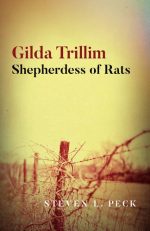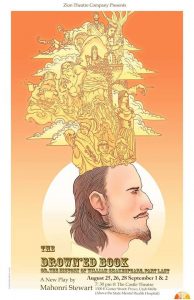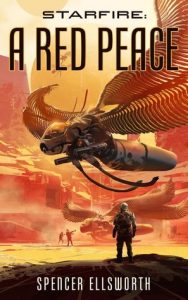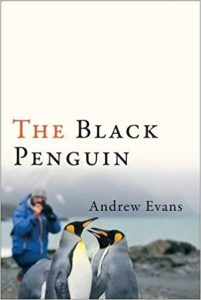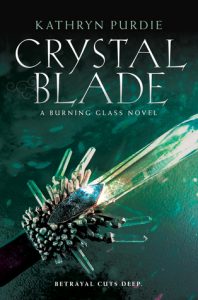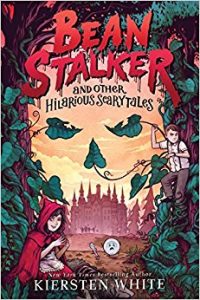This month we mourn the passing of author Rulon T. Burton, anticipate a new Stephen Peck novel, and look forward to a new Mahonri Stewart play. There is also a slew of new nationally published novels, and a well-reviewed movie, We Love You, Sally Carmichael!, made largely by Mormons, which gently satirizes Utah culture and the Twilight phenomenon. And a Mormon filmmaker gets jail time. Please send news and announcements to mormonlit AT gmail DOT com. Also, we are looking for more people to write for the blog, including essays and book reviews. Please send your writing or ideas to that address.
 In Memoriam
In Memoriam
We note with sadness the passing of Rulon T. Burton, on Monday, July 24, 2017, at age 91, in Draper, Utah. Burton, a lawyer, authored six novels and nine non-fiction works. Most were self-published, usually at Tabernacle Books, an imprint run by his son Gideon Burton. The books include:
We Believe: Doctrines and Principles of the Church of Jesus Christ of Latter-day Saints. Tabernacle Books, 1994. A comprehensive reference work on what Mormons believe. Contains almost nine hundred doctrines and principles of the Church, supported by quotations from Church leaders. The Island That Was Not There. Tabernacle Books, 1998. Children’s book illustrated with 18 full page oil paintings by Charlotte Mortimer. Momotani. CreateSpace, 2011. Missionaries Two: Rulon and Jo Burton, Mormon Missionaries to the Islands of the Pacific. Tabernacle Books, 2003. By My Own Hand. Tabernacle Books, 2003. Includes the stories of his shipboard World War II experiences in the Pacific Ocean and his first mission to Denmark. Rim of Eternity. Tabernacle Books, 2006. A re-telling of the exotic tale of Shangri-La relocating the setting to a remote valley of the Stanley Mountains of Papua new Guinea, where he has personally visited. Unlike the James Hilton novel, Lost Horizon, this adventure story includes a beguiling romance. Teachings of the LDS Church can be recognized surfacing in extraordinary ways, adding thought provoking dimensions to the story, and to LDS doctrines. Stolen Lives. Tabernacle Press, 2014. Slavery on Jamaican plantation.
News
Darran Page, the Australian director of the 2016 movie The Spirit of the Game, admits 21 child sex offences. Melbourne Herald Sun, Aug. 6. Darran Scott — formerly known as Darran Page — faces years behind bars for his sickening acts of depravity committed against vulnerable boys under his care. Scott, 52, is most notable for writing and directing the independent movie The Spirit of the Game, which told the real-life story of a team of Mormon basketballers who helped the Australian team prepare for the Melbourne Olympics in 1956 . . . Today (Monday) he pleaded guilty in the Latrobe Valley Magistrates’ Court to 21 charges, including two of raping a boy aged under 16. Scott met six of his young victims through his position of authority with the Church of Jesus Christ of Latter-Day Saints.
The 1977-1984 volumes of the Association for Mormon Letters Newsletter are now available on the blog. See how the organization began!
Recent articles about the new BCC Press books:
Melissa Leilani Larson. “What’s a nice Mormon girl like you doing writing plays like this?” By Common Consent.
Interview with Melissa Leilani Larson, Mormon News Report podcast #6.
Rachel Hunt Steenblik. “How a Book About Heavenly Mother was Written (and illustrated).” By Common Consent.
Read Local Sunday: Mette Ivie Harrison. Artists of Utah.
Interview with Tracy McKay, Mormon News Report podcast #4.
Magazines, short stories and essays
 BYU Studies. 56:2, 2017. Includes writings of and an interview with Lance Larsen, and an essay by Kim Webb Reid.
BYU Studies. 56:2, 2017. Includes writings of and an interview with Lance Larsen, and an essay by Kim Webb Reid.
Lance Larsen and Casualene Meyer. “Pieces of April: From the Life and Journal of Lance Larsen”. These extracts from the journal of poet Lance Larsen provide a window into “the importance of noticing” and “the inner life, a lived perspective that clarifies the creative process.” Larsen was Utah’s poet laureate from 2012 to 2017. Introducing the journal entries is an interview with Larsen conducted by BYU Studies poetry editor Casualene Meyer. Interspersed among the journal entries are four of Larsen’s poems.
Kim Webb Reid. “Aviophobia” Essay. Reid examines her lifelong fear of flying that began when a SkyWest flight crashed into a private plane over her elementary school while she was at recess. This essay won first place in the 2017 Richard H. Cracroft Personal Essay Contest.
2017 Sunstone Fiction Contest winners. 1st Place: “Tower,” by Ryan McIlvain. On the heels of his father’s suicide, an aspiring writer reinterprets a fateful home teaching visit. 2nd Place: “Jesus Christ (Almost) Visits the Mormons,” by Ryan Shoemaker. In this comic story, Jesus meets his match when he tries to give a talk at the Burbank 4th Ward. 3rd Place: “420 North,” by Alex Peterson. A drive into Sanpete County becomes a wrestle for sanity. Is that the Spirit whispering? Or the devil?
Ryan Shoemaker. “High Times in Zion,” in Bop Dead City. Aug. 2017. Short story.
Spencer Hyde. “The Saturday Wife”. Five Points: A Journal of Literature and Art. Spring/Summer 18:1. Essay.
Kate Finlinson has a short story in The Cincinnati Review, 8:2, May 2017. I am not sure of the title. Some of her previous stories include “Pioneer Trek” (2015) and “Patron of the Arts” (2013).
Mirages and Speculations: Science Fiction and Fantasy from the Desert. Lyn Worthen, editor. Kydala Publishing, Aug. 19. This anthology of short stories includes several Mormon authors. Many of them appeared in a 1993 anthology of Great Basin stories, Washed by a Wave of Wind, Others are newer authors. The authors include: Johnny Worthen, Diann T. Read, Melva L. Gifford, Susan J. Kroupa, Jay Barnson, Paul Genesse, D. J. Butler, David J. West, M. Shayne Bell, Virginia Ellen Baker, Julia H. West, Julie Frost, Voss Foster, Gama Ray Martinez, Leigh Saunders, Mary Pletsch, and Annie Reed.
New books and their reviews
Nancy Campbell Allen. The Secret of the India Orchid. Shadow Mountain, Aug. 1. Regency Romance. British in India.
Jennie Hansen, Meridian Magazine. 5 stars. “Though the cast is large, the author handles it well and without confusion. Both the British class system and the Indian caste system are recognized as realities of the time period and are used to aid in defining characters, but also to highlight their unfairness. It’s easy to sympathize with both Sophia and Andrew who are both portrayed as likable, caring people dealing with difficult circumstances . . . It is as much mystery as romance. The romance is a given from the start and neither Sophia nor Anthony make much effort to disguise their feelings for very long. The mystery portion, though slightly predictable, grabs the reader’s attention and is enjoyable to follow.”
Frank L. Cole. The World’s Greatest Adventure Machine. Random House, Aug. 8. MG adventure/speculative. Four very different kids win the chance to be the first to ride a special adventure roller coaster, but it turns out to be more than they expected.
Kirkus: “Four young people test a new, high-tech amusement park ride that tests them in turn. In openly admitted homage to Charlie and the Chocolate Factory, Cole brings together a quartet of (supposed) contest winners to take the titular machine on an inaugural ride. Outfitting them in special body suits (“We’re going to look like Oompa-Loompas”), he subjects them to a barrage of hazards ranging from a stampede of miniature moose to a cleaver-wielding actor specializing in psychopathic murderers and murderous robots. But although it’s all the product of an advanced form of virtual reality that is supposed to incorporate each player’s distinctive fears, most of the terrors encountered (aside from the moose) are generic horror-show fare. The four preteens—two white, one “dark-skinned,” one “olive”—make up a like muddle: Cameron is a motor-mouthed brainiac (with a fetching habit of unconsciously stripping to his underwear when deep in thought), Nika and Trevor are afflicted with medical conditions that leave them, respectively, incapable of feeling any physical pain or fear, and in an odd bit of genre miscasting, Devin is clairvoyant. Moreover, the author himself seems unsure where the VR ends and the other sort resumes; the robots, for instance, seem to exist in both. Cole pitches some entertaining notions but proves weak on follow-through.”
Middle Grade Mafia: “I expected the story to follow a linear plot course, maybe a twist or two for good measure, but I was pleasantly surprised. Not only were there as many twists in the story as there was on the roller coaster, but each was difficult to see coming. Cole did a great job of keeping me engaged in the story, as well as on the edge of my seat. Each night when I put it down (one chapter passed when I should have gone to bed), I wondered what was going to happen next.”
Julie Daines. Havencross. Covenant, Aug. 1. Regency romance. “When a shocking scandal involving her father spreads through London society, Elaine Cardinham and her parents are forced to retreat to their country home in Cornwall for refuge. But Havencross is no sanctuary for Elaine. She is haunted by the mysterious disappearance of her brother—and the heartbreak she left in her wake all those years ago.”
Mindy, 5 stars. “Julie Daines is one of my favorite authors. Her books are always wonderful. I absolutely loved Havencross. I could tell Julie researched thoroughly for this book and it paid off. The setting itself was a character. With the beautiful descriptions and details, I could picture Cornwall. The story is beautifully told and I loved the suspense that was throughout the book as well. Elaine was a strong, smart and caring character. All of the characters were written well. Gareth was especially wonderful. I loved the seeds of hints that were planted along the way. I was not surprised by the “bad guy”, but wow, so many exciting scenes and heart-pounding suspense kept me reading and reading and reading until I was done.”
Jennie Hansen, Meridian. “Daines’s characters deal with emotional problems that can afflict people of any time period. She draws a strong character in Elaine who attempts to run away from her problems by physically leaving and Gareth who tries to cover up his problems by emerging himself in finding his father’s murderer and shutting all else out. Both characters are realistic and likable, sometimes make mistakes, but are not lacking in courage. Most of the secondary characters fill their roles well, but Elaine’s parents are weak with insufficient explanation. The father’s withdrawal from life is overdone as is the mother’s childish anger. The earl and Gareth’s mother are strong secondary characters. The romance elements are handled well, but the strongest part of the story is the mystery involving the murders and smugglers. Regency Romance fans will enjoy the story, but action and historical readers won’t want to miss this one either.”
Brittlyn Gallacher Doyle. Waking Beauty. Sweetwater/Cedar Fort, Aug. 8. YA fairy tale/romance. Retelling of Sleeping Beauty. Debut novel.
Jennie Hansen, Meridian Magazine. “The characters in this story are fun. Claire is a bit naive and gullible, but her heart is in the right place. Damian is arrogant and indifferent to anyone’s needs but his own. James is physically strong and well trained in the military arts and skills, but is imprisoned by the threats of harm to those he loves should he not be totally obedient to Damian’s orders and expectations. He works hard to conceal his anger and bitterness. His growing feelings for Claire cause him a great deal of stress. Though the story is based on a children’s favorite fairytale, the author has continued the story as a modern cautionary tale teens and adults will enjoy. The challenges the trio face are out of the ordinary. The growth Claire goes through as she faces the outside world is realistic. The plot arc is well done. Readers looking for a change of pace novel will enjoy this one as will those who like a touch of fantasy or a lot of action.”
M. R. Durbin. Double Eagle Double Cross. Covenant, Aug. 1. Thriller. Sequel to Beyond the Narrows. “After an unexpectedly thrilling summer with his grandfather, Oregon State student Charley Sawyer is ready to catch his breath at his late parents’ Oregon beach home. Hoping for some rest and relaxation, Charley is met instead by devastation: the house has been ransacked. In his inventory of the damage, Charley stumbles across the item the trespasser must have been after, the only thing that seems out of place: a mysterious key. And when he learns what it unlocks, Charley is drawn into yet another adventure with a ragtag group more than willing to help.”
Jennie Hansen, Meridian. 3 stars. “Durbin produces an interesting set of characters in this novel. His “old people” are a close knit group of friends, retired from their previous occupations though still dabbling in those fields. They’re supportive of each other and would do anything to help their grandchildren. They’re a bit nosy and presumptuous and they tell awful jokes and make ridiculous puns. Charley and Mac love their grandparents and the grandparents’ friends dearly, but sometimes find them a little too much. Mac and Charley’s relationship is not played as well as it might have been since they’re apart through most of the story. Secondary characters are distinct individuals and are not always what they appear to be. The setting along the rugged Oregon coast is an important aspect of the story. Durbin creates a number of great scenes and provides a nice plot arc, though the ending felt a little melodramatic to me. Mystery/Suspense readers as well as Action readers will love this change-of-pace and background novel.”
Spencer Ellsworth. Starfire: A Red Peace. Tor, Aug. 22. Science fiction. Starfire #1. Debut. “A classic space opera, with space battles between giant bugs, sun-sized spiders, planets of cyborgs and a heroine with enough grit to bring down the galaxy’s newest warlord. Think Star Wars if the Rebellion had been more like the Bolsheviks.”
PW: “Elsworth’s debut is a capable, if familiar, take on revolution in space and what comes after an empire falls. Jaqi is a smuggler barely surviving on the edges of what remains of the interstellar Second Empire. Araskar is a hero of the resistance, which has recently toppled the empire. Both men are products of crossbreeding programs started by the empire and stopped by the revolution. Neither is prepared for the cold reality of the new regime, which promises freedom but delivers only death. Elsworth’s writing is workmanlike, and his characters are consistent, though not original. The story is fast-paced but relies on happenstance and good luck, which limits the agency of his protagonists. Body horror and hand-to-hand combat are substituted for high-energy combat. This first volume primarily sets up the narrative that is to come, and leaves too many threads dangling for the conclusion to be satisfying.”
Andrew Evans. The Black Penguin. University of Wisconsin Press, April 25. Memoir/Travel book. The author was a BYU student and a missionary. Felt bullied at BYU, partly because of his homosexuality. Eventually left the Church. Became a National Geographic travel writer, went to Antarctica.
PW: In this endearing stunt memoir, travel writer Evans combines an improbable trek to Antarctica with his struggles surrounding religion, family, and sexuality. Backed by National Geographic, Evans embarked in 2010 on a bus journey from Washington, D.C., to the tip of South America, where he caught a ferry to Antarctica. This book expands on his tweets and blog posts to capture the highs and lows of nearly two months riding in buses. Sketchy border guards, close calls with violence and natural disasters, and intriguing characters fill vignettes that range from hair-raising to hilarious. In between these tales, he more impressionistically recounts his experiences growing up and being bullied for his nerdish effeminacy. He also tackles the clashes between his Mormon family and his homosexuality and pays homage to the long-lasting relationship with his husband without letting these overwhelm his travelogue. These two distinct halves hold together surprisingly well, thanks to Evans’s excellent writing and eye for detail. The work will appeal equally to fans of clever travel writing and those looking for LGBTQ memoirs that don’t fixate on the angst of coming out.
NY Times: Evans interleaves three urgent personal quests: his expedition (to Antartica), his effort to convince his family to accept his homosexuality and his struggle for the right to marry the man he loved. As a Mormon growing up in rural Ohio, Evans knew he wasn’t like everyone else and so did the kids at school, who bullied him mercilessly. His only “shield of defense” was “a worn copy of National Geographic.” At 14, he wrote an earnest letter to the National Geographic Society, which responded in two months with encouragement. Many years later, after becoming an Eagle Scout, serving as a missionary in Ukraine and graduating from Brigham Young University, where he was forced to submit to “reparative” conversion therapy, Evans wrote to the magazine again, and this time he got an interview. It was the fall of 2009. “I want to go to Antarctica,” he told the editor. “I want to go overland — I want to take the bus.” What he was after, he explained, was to “take an old-fashioned expedition to the bottom of the world” but “to tell the story in real time, online.” “The Black Penguin” relays the ups and downs of that journey, but the terra incognita Evans claims is his own pride.
Scott Abbott review.
Charlie N. Holmberg. The Fifth Doll. 47North/Amazon, July 25. Fantasy/horror.
PW: “Holmberg effortlessly shifts from fantasy to horror with this creepy short novel set in Russia. At age 26, Matrona Vitsin is considered an old maid in her small provincial community, and her parents are delighted that they will be marrying her off to butcher Feodor Popov. Early on, Holmberg drops subtle clues that Matrona’s village is a bit unusual, as when Matrona is surprised by the local crank’s reference to something called snow. Her act of kindness to a neighbor, Slava Barinov—returning a fancy paintbrush that had been dropped outside his home—exposes her to even more surprises. After she enters Slava’s house, Matrona is astonished to observe over 100 wooden dolls painted to resemble the villagers, including one that looks like her father. Her attempt to open that doll to discover its contents is interrupted, and when she returns home, she finds her father has been stricken with a mysterious and painful ailment, which proves not to be coincidental. The plot’s unexpected detours are entertaining.”
Colleen Houck. Reunited. Delacorte, Aug. 8. YA Fantasy/Paranormal Romance. Reawakened #3. “With the help of her old friend Dr. Hassan, Lily departs on her final voyage through the cosmos and across the plains of Egypt. On the journey, she will transform into the being she is destined to become.”
Kirkus: “Lily and her three Egyptian lovers traipse hither and yon through the cosmos to save humankind. It began in a New York museum when white, teenage Lily met and fell in love with the Reawakened (2015) sun god, Amon. Then Lily became a sphinx and traveled to the underworld to do battle with the evil sorceress, the Devourer, in Recreated (2016). Now, in the concluding episode, Lily possesses two other spirits: a lioness and an Irish fairy. Lily and her internal residents traverse the universe on unicorns along with their respective love interests, the gods Amon, Ahmose, and Asten. They have countless battles with gazillions of monsters like “sky demons,” a cross between gargoyles and wolves, and the Devourer (again!) in order to stop Seth, the Dark One, from his evil doings. Meanwhile, despite her wishes, Lily is morphing into yet another kind of ultimate goddess called Wasret. The first-person narrative alternates through each female’s perspective. It’s vastly imaginative, but this tale is so overwrought with multitendrils of plot tangles that by story’s end it’s difficult to tease them apart. It’s further bogged down with unnecessarily long descriptions of landscapes, references to Lily’s hair, and cringeworthy ardency: “He was devastatingly handsome in the way that the most wickedly desirable boys are.” Endurance will pay off for those interested in Lily’s fate, but they need to be mighty interested. ”
Annette Lyon. Song Breaker. Blue Ginger Books, Aug. 8. Based on a Nordic myth in the Finnish Kalevala, which inspired Tolkien’s Lord of the Rings, including his character of Gandalf. To Aino, the idea of spending her life warming the bed of a wrinkled old wizard—especially when it means life without her secretly betrothed love—is horrifying. When her brother Jouko foolishly duels Vane, the greatest wizard ever known, he finds himself on the verge of death and saves himself only by promising his sister as the old man’s trophy. Furious, Aino refuses to be forced into marrying anyone. But with only two days until the wizard comes for her, she must find a way to break the curse, or she’ll end up his prisoner. She uncovers a possible solution, but while it may technically free her from the old man, her escape may mean exchanging one kind of prison for another.
Kristen McKendry. The Song of Cooper Creek. Covenant, July 1. Contemporary romance. “It’s been more than a year since she lost her family—a tragedy that has left Grace Whitaker a shadow of her former self. Unable to move on surrounded by so many memories, she makes the desperate decision to return to her childhood home in Port Dover, Ontario, Canada. There she hopes to salvage the broken pieces of her life—but what she finds is the promise of peace and healing in an unlikely place. Copper Creek Farm is part of a Canadian historical museum, offering glimpses into nineteenth-century pioneer life. Yet the farm offers much more than that—it is a place of second chances.”
Heather B. Moore. The Duke’s Brother. Mirror Press, Aug. 8. Regency romance.
Ashtyn Newbold. Lies and Letters. Sweetwater/Cedar Fort, July 11. Regency romance.
Jennie Hansen, Meridian Magazine. 3 stars. “Newbold takes an unusual approach to her Regency period novel. Her leading lady, Charlotte Lyons, is not like other Regency heroines. Yes, she’s beautiful and talented, but she’s also vain, superior, and considers herself entitled to whatever she wants. She’s mean to her younger sister and disdainful of anyone who isn’t rich and titled. Frankly, she’s a spoiled brat . . . Readers who are tired of Regencies will love this one and Regency readers will find it amusing too. The author, though young, shows a great deal of promise.”
Steven Peck. Gilda Trillim: Shepherdess of Rats. Roundfire Books, Sept. 29. “Peck’s intriguing, literary narrative follows Gilda Trillim’s many adventures; from her origins on a potato farm in Idaho, to an Orthodox Convent in the Soviet Union, to her life as a badminton champion. When Gilda is taken prisoner during the Vietnam war, she finds comfort in the company of the rats who cohabit her cell. Follow Gilda as she struggles to comprehend the meaning of life in this uncanny, philosophical novel which explores Mormonism, spirituality and what it means to be human.”
Blurbs: Carol Lynn Pearson: “Beautifully bizarre! I could not have taken this dizzying journey except for a master hand leading me through the surprising giggles into the even more surprising blessings of grace, wisdom and healing. I really don’t think Gilda is fiction, for I fell in love with her, and as she and I both know, love is stunningly real.”
Michael Austin: “What a mad, marvelous, and compulsively fascinating heroine Steven Peck has created in this novel – a woman who can spend a year painting pictures of an apple seed and write a novel describing the contents of a single drawer. By carefully scrutinizing these microcosmos of everyday life, Gilda Trillim (but really Steven Peck) starts to answer some of the biggest questions of all, like “Where did God come from?”, “How do complex patterns emerge from random chaos?”, and “Why does anything even exist at all?”
Emily W. Jensen. “You are one of the lucky few to be living on this very planet at a time when a physical copy of Gilda Trillim’s wit and wisdom can be placed into your waiting hands. I envy the roller coaster of colorful images and wrenching emotions your mind is about to enjoy as you uncover Gilda’s spunk and spontaneity as a one-handed naturalist who writes creatively, paints particularly, and has a wicked badminton return. Come with her as she susses out the meaning of love through engaging with potheads and fishheads and attempt to understand her wide-reaching philosophical musings that stretch across the cosmos and then constrict into the core of an appleseed. Even though you are not a rat (unless you are and then congratulations for getting your paws upon this scripture!) you will find much to learn about the universe and finding one’s place within it. By willing the one-handed, full-hearted, and perhaps-insane Gilda Trillim into existence, Steven Peck again captures the wonder and failings of being human and the mystical connections between the natural and religious world that make life so delightfully complicated.”
Clair Poulson. The Search. Covenant, Aug. 1. Mystery. A young private investigator takes on a case involving a professional basketball player.
Aimee (Getting Your Read On): 3.5 stars. “I’ve been reading Clair Poulson books for a long time. He is great at writing light mystery/suspense stories that capture the essence of the genre without going overboard on the gruesome or violent details which I appreciate. Clair Poulson is know for writing tell it like it is, no nonsense kind of characters and this story is no different. I did appreciate the attempt at light humor from the main character, Jayden. It helped give him a bit more personality which is something I sometimes struggle with in Poulaon’s books. The plot is always excellent and moves forward at a fantastic pace, but it’s the emotional connection with the characters that I am usually missing . . . Overall, another good book from Clair Poulson. I enjoyed the pacing and the constant feeling I had of wondering how all the “bad” guys came into play and connected to what was going on. It was a fun story!”
Bonnie: 4 stars. “This is one of the better suspense novels I’ve read of Poulson’s. The prologue was incredible gripping and I couldn’t wait to get into the story. The next few chapters were on the slow side. It felt info dumpy, yet at the same time it was done in the way of an interview and the information was necessary for the story. Part of me wishes he would have done it in a different way though. Once the story got moving, it was great. I loved the snarkiness of Jayden, and the relationship between Jayden and Nadia felt real. I especially loved reading about Bullet, Jayden’s partner. The list of suspects is long, but as they weave through each one, it left me wondering until the very end, if I had gotten it correct. This is a great suspense novel that has a little bit of romantic elements in it. I would recommend it to anyone who loves a good suspense.”
Jennie Hansen, Meridian. 4 stars. “Nadia is a great character that readers will fall in love with. Jayden is lovable, but annoying at times with his constant word play and jokes. They both are intelligent and determined. Overall the story moves at a rapid pace with a satisfying plot arc ending in a slightly rushed ending, including one critical event occurring off stage. Poulson is one of the best when it comes to creating a story that keeps the reader turning pages as quickly as possible. He doesn’t fail on that score with this story. He’s also highly adept at creating a background that is easy to visualize and realistic, but doesn’t intrude unnecessarily. The love story portion of the story is kept low key, but present throughout the book. Fans will love this one and new readers with a taste for suspenseful mysteries will too.”
Kathryn Purdie. Crystal Blade. Katherine Tegen Books/Harper Collins, Aug. 15. YA fantasy. Burning Glass #2. “In Riaznin, it’s considered an honor for Auraseers like Sonya—girls with a rare form of synesthesia—to serve as the emperor’s personal protector, constantly scanning for feelings of malice and bloodlust in the court. But Sonya would rather be free.”
SLJ: “This follow-up to Burning Glass begins a few weeks after the first book ends, with Sonya and Anton working to build a new government for Riaznin and celebrating their newfound love. Only beginning to develop the strength of her powers, Sonya is fighting to avoid succumbing to the darkness and to push toward the best path for Riaznin. Anton has been elected governor and is working hard for stability, but he is also concerned with hiding the depth of Sonya’s powers from others. When Sonya betrays him, what will happen to her, Riaznin, and all she holds dear? The novel is well paced, Riaznin is intriguing, and characters continue to develop, leaving something for readers to discover. Teens will find the same mystery and intrigue as in the last outing, with even more passion and betrayal in this volume. This entry ends in a jaw-dropping cliff-hanger, which will keep fans anticipating the final chapter of the trilogy. VERDICT Avoiding the dreaded sophomore slump, this is an ideal purchase for libraries where the previous installment is popular”
Kirkus: “The whiny girl Sonya was has been replaced by a strong but flawed woman who owns her convictions. Sonya’s first-person narration is filled with descriptions of the emotions of those around her. The effect can be disorienting, but perhaps that’s the point. A few minor characters have darker than white skin, and other than the Romani-cognate Romska, the people of Russia-analog Riaznin appear to be white. With this second installment, the Burning Glass trilogy hits its stride”
Shannon Symonds. Safe House. Bonneville/CFI, July 11. Thriller. “In a small coastal town in Oregon, Amber and Kelly know the deadliest people sleep down the hall. As they attempt to escape the violent, domineering men in their lives, despair fights against faith and hope as an introduction to the Book of Mormon promises them a haven they can’t find in their homes. But getting out of these abusive situations is not as easy as it appears. With their lives spiraling out of control, can they have faith that God’s grace will save them?”
Jennie Hansen, Meridian Magazine. 4 stars. “Safe House by Shannon Symonds is not an easy book to read, but it is impossible to forget. It deals with the difficult subject of domestic abuse. If anyone has ever wondered why an abused spouse doesn’t just leave, this story will answer that question. An abused spouse is usually penniless and worries about how and where she’ll live if she leaves or worries about her or her children’s safety if she leaves and becomes homeless. Shattered self esteem is another factor. This book also points out how to find help. It’s also a great story . . . The characters in this story are realistic both in their words and actions, as well as in life’s trivia that surrounds them. Because of the large cast of characters and many points of view, it is unfortunate the author used so many similar names which create some confusion. The name Ironpot also tends to stop the action because of its unusual connotation. Symonds does a superb job in demonstrating the horrors of spousal abuse. She not only highlights the physical damage, but also the emotional conditioning that precedes the abuse and the twisted logic of both the perpetrator and the victim. She goes on to realistically portray the struggle to climb out of the abuse cycle. The setting is a small coastal Oregon town with all of the benefits and flaws of a small town. I would have liked a stronger ending that wrapped up all of the loose ends better. Still this is an outstanding, well-told story dealing with a difficult topic.”
Rachel Ward. Right Next to Me. Cedar Fort/Bonneville, Aug. 15. YA Romance. “Sydney is faced with making an impossible decision: stay with the perfect boyfriend or go for the best friend who has always loved her?”
Kasie West. Lucky in Love. Point, July 25. YA romance. “Maddie wins the lottery. In a flash, Maddie’s life is unrecognizable. No more stressing about college scholarships. Suddenly, she’s talking about renting a yacht. And being in the spotlight at school is fun… until rumors start flying, and random people ask her for loans. Now, Maddie isn’t sure who she can trust. Except for Seth Nguyen, her funny, charming coworker at the local zoo. Seth doesn’t seem aware of Maddie’s big news. And, for some reason, she doesn’t want to tell him. But what will happen if he learns her secret?”
SLJ: “A quick read with lots of dialogue, the story is sweet and safe, and Maddie’s stumbles are swiftly remedied. VERDICT Lighthearted, romantic but never gratuitous, and honest without being overbearing. Fans of Susane Colasanti, Jennifer E. Smith, and Jenny Han will enjoy this smart girl protagonist dealing with the typical (and not-so-typical) drama that senior year of high school brings.”
Kirkus: “Seth’s an American kid of Vietnamese-American, U.S.-born parents, a rarity in teen literature, but in their California region, where 20 percent of residents have Asian roots, he and white Maddie inhabit the same cultural mainstream. The romantic cover photo positions both side to, but while Maddie’s race, with her long blonde hair and fair skin, is clearly conveyed, black-haired, olive-skinned Seth’s is more ambiguous—it’s disappointing this Asian-American romantic hero isn’t firmly announced as such. There’s a wealth of profoundly topical, thematic territory to explore in lottery wins; this iteration, with its cast of culturally and economically diverse characters, is especially resonant.”
Melissa, Goodreads: 2.5 stars. “I love Kassie West and have loved all her books. This one took me by surprise because I wasn’t loving it. It drug a little. West great points in her books are her characters and the main character was the only real person in this book. All the other characters felt minor and really had no depth, even the love interest. I felt like too much was edited out of this story? What where her two best friends doing talking and eating together in sneaky ways? I have no idea, it was talked about over and over and I felt even in the beginning of the book something was going on with these two. I feel like some of the characters got closure but other did not. I ended up not really liking much of anyone in this story:{ I loved the way this ended, it saved this book for me. The end was cleaver and sweet and Maddie got happiness and a path to follow. The idea was a new one and I did keep reading but it just did not have the same magic for me her others have.”
Jeff Wheeler. Kingfountain: The Silent Shield. 47North/Amazon, Aug. 22. YA fantasy. Kingfountain #5. The Kingfountain books have come out about every 4 months since April 2016. I just became aware Wheeler. He also four-volume Covenant of Muirwood series in 2015-2016.
Jeff Wheeler. Kingfountain:The Hollow Crown. 47North/Amazon, June 13. YA Fantasy. Kingfountain #4.
PW: “Wheeler drops some knowledge at the end of his book: “I’ve really enjoyed respinning obscure Arthurian legends.” But Lancelot, who’s gender-flipped as the heroine of this second Kingfountain trilogy, is hardly obscure. Wheeler’s assumption of the audience’s ignorance may explain the sludgy start: more than 50 pages of backstory, given as the heroine sits playing wizr, a form of chess, or stands aside as a lady-in-waiting. She’s Tryneowy Kiskaddon, daughter of the prior trilogy’s hero, Owen. Unlike Owen, Trynne has roles to fit into, not an identity to discover. She listens. She worries about her appearance. And when she finally lays eyes on Siege Perilous and recognizes her prophesied destiny, she’s told by her own magic that she must remain silent. Her counterpart is a restless boy she calls Fallon, but whose given name is actually, in another nonobscure reference, Iago. Their story is a collection of half-digested cultural references that have little internal logic. Trynne, tediously, is defined only by her relationship to dominant male narratives—Lancelot’s, Owen’s, and the patriarchy’s as a whole.”
Kiersten White. Beanstalker and other Hilarious Scarytales. Scholastic, July 25. Middle grade fairy tales/humor. She takes several Grimm Fairy Tales and Mother Goose nursery rhymes and retells them, weaving each together into a longer narrative.
SLJ: “Best-selling YA author White makes her middle grade debut in this creepy but hilarious collection of reimagined fairy tales. Readers will be quick to recognize familiar faces like Little Red Riding Hood, Cinderella, and Snow White, but the recognition stops there. These archetypal figures, along with their stories, are subverted by macabre characterizations that see them turning into zombies, vampires, or worse. In White’s nameless “scarytale” kingdom, monsters and little girls might be the same thing. Princes and princesses might be locked in towers (or coffins) for a good reason. Each story blurs the line between good and evil, such that the only true foe is misunderstanding. With clever wordplay and confused homonyms (hair/Herr; pea/pee), White makes it clear that spelling and meaning matter greatly. But staying alive matters most of all. Even when the plot is frightening, readers can rest assured that there’s a joke around the corner. Short, adapted nursery rhymes separate stories and elicit chuckles. Occasional spot illustrations also provide comic relief with their cartoony, exaggerated quality. The real star of this romp, though, is the narrator. Equal parts Terry Pratchett and Lemony Snicket, the unnamed omniscient narrator relates each scarytale. Some stories are scarier (and cleverer) than others, but the consistency of tone will have readers eagerly flipping from story to story. VERDICT For larger collections. This book will circulate best where fairy-tale retellings—especially Adam Gidwitz’s “A Tale Dark and Grimm” series—remain popular.”
Kirkus: Zombies and vampires and Grimm, oh my!Nothing is quite what it seems in these morbidly fractured fairy tales . . . Some may find the stories and accompanying illustrations a bit too scary, but White’s abundantly evident glee keeps things from getting too dark. In keeping with the stories’ European origins, nearly all characters are white—except for a few who have turned an undead-shade of gray…. Disturbingly delightful.
Reviews of older books
Mette Ivie Harrison. For Time and All Eternities (Michael Austin, Goodreads) 5 stars. “Just about everyone who writes mystery novels about Mormons eventually gets around to the polygamous compound. For some (Robert Irvine, Gary Stewart) it never gets anywhere else. But Harrison works it logically into the overall narrative of Linda Waldheim–more successfully, I think, than Andrew Hunt–the other contemporary mystery novelist with a Mormon series–does in A Killing in Zion, which has similar themes. But what I liked the most about For Time and All Eternities was its development of Linda as a protagonist with her own angels and demons. She has become someone that I could care about even if she were in a novel where nobody even died.”
Melissa Leilani-Larson. Third Wheel (Ted Lee, Medium). “If Little Happy Secrets is a hurtling, out-of-control train — barreling down the tracks, careening dangerously, ready to self-destruct at any minute — then Pilot Program is the slow burn of the fuse on a bomb that we, the audience, watch with ever-mounting anxiety as it sparks away, curling the blackened wick at an agonizingly plodding pace yet never quite reaching the payload before the curtain falls. The two experiences end up feeling different in the starkest of ways, and yet the ending is always the same — I am left on the ground, knocked off balance, gasping for breath and wondering, “What just happened?” And my heart aches for these characters. I find myself wanting to do all the Mormon things for them — bake them a casserole, invite them over for board games, mow their lawn, sit with them in church on Sunday — just something to show that I care and I know and I hurt, too, and we all hurt in our own ways and none of this is true or real and yet impossibly all of it is true and real. I find myself yearning to be Mormon with them, because in these pages, in these lines, I find myself in them, a third wheel between my faith and these stories wondering if I can fit in with everything else, if I can ever really fit in at all. I stare into Mormonism’s future, and — I absolutely confess — I am more than a little scared. But if we have people in our faith and communities like Larson telling stories like the ones found in Third Wheel, I feel a little bit less scared and a little bit less lonely and, despite myself, just a little bit more hopeful.”
Adam S. Miller. The Gospel According to David Foster Wallace: Boredom and Addiction in an Age of Distraction. New York Times. “The lovely “The Gospel According to David Foster Wallace” . . . in which a philosophy professor named Adam S. Miller looks at some of the favored themes — despair, distraction, indifference, boredom — in Wallace’s writing. I will confess that Mr. Miller’s incantatory and gorgeous preface — a discussion of why disappointment is not an obstacle to transcendence, but rather, its aim — caused me to well with tears. The rest of my reading experience was less moist, but when was the last time that literary criticism yielded an emotional reaction other than faint horror or muffled cackling?”
Theater
Mahonri Stewart. The Drown’ed Book, or the History of William Shakespeare, Part Last. Castle Amphitheatre, 1300 E. Center St., Provo. Zion Theatre Company. Aug. 25-Sept. 2.
Daily Herald feature story. “It explores William’s relationships with his wife, Anne Hathaway, and their daughter, Judith Quiney. The play’s title echoes a line from the sorcerer Prospero in “The Tempest,” whose relationship with his daughter Miranda factors into that show.”
Carol Lynn Pearson. Mother Wove the Morning (Welcome Table Productions, Provo, June 15-17, instagram.com/welcometableproductions). Encore: Aug. 10, 11, 21, Canyon Glen Park Amphitheater.
Derrick Clement, Daily Herald, reviews the SLC production of “The Book of Mormon” musical. “As a Mormon myself, I appreciate the outsider perspective that Parker, Stone and Lopez bring, which extends not only from Mormonism but, it would appear, from all religious doctrine. The musical is an atheist’s “Fiddler on the Roof,” at its core being less interested in interrogating the nuances of a Mormon mission experience than that of a faith crisis in any tradition . . . There is one part of the show’s philosophy that I do embrace, being sympathetic to other Mormons who won’t. It’s summed up by something one missionary says late in the show: “We’re all Latter-day Saints. Even if we’ve changed some things, or we break the rules, or we have complete doubt that God exists.” Each time I have seen the show, that line, and the Broadway-at-its-finest celebratory musical number that follows it, makes me feel something real, even spiritual. No, the message isn’t perfect, and neither are the characters. But they’re using a faith tradition that I call home to reach more deeply into themselves and find compassion for others. They use it, or at least a version of it, to engage with the challenges of life with arms — and eyes — wide open.”
Melissa Leilani Larson. Pilot Program. The AML-award winning play will have a staged reading on Sept. 9 at Utah Valley University’s Ragan Theatre. The play is included in the recent Larson collection Third Wheel. The event will also include Mette Harrison reading from her novel The Book of Laman.
Film
We Love You, Sally Carmichael! Directed by Christopher Gorham, written by Daryn Tufts, produced by Adam Abel, cinematography by Ryan Little. August 4. Gorham is not Mormon, but Tufts and most of the rest of the creative team are. Gross as of Aug. 21: $81,070.
Readers across the world are in love with author Sally Carmichael’s series of romance novels that chronicle the epic love story between a human girl and a merman. It is thought that Sally is a Mormon woman, but the author is really Simon Hayes, a bitter, serious novelist – and Simon would like to keep it that way.
Derrick Clements, Daily Herald:B+. ” One of the joys to be found in “We Love You, Sally Carmichael!” is a surprising heap of fun ensemble characters . . . I liked the way “We Love You, Sally Carmichael” operates as a Utah film that leans into its Utah setting, including the explicit representation of Mormon characters, without being, in any way, a “faith film.” And while the film is entirely friendly to family audiences, I detected (and enjoyed) a slight edge in its loving fun-poking of “Twilight.” Anybody could (and has) drawn on the pop culture phenomenon status of “Twilight” for parody, but “Carmichael” is able to riff on a more niche, local aspect of the series: that is, its real-life author, Stephenie Meyer, has been open about her own Mormon identity . . . Snooty critics will turn up their noses to things like “Twilight” or “Sally Carmichael,” but the latter succeeds precisely because it’s not a mean-spirited parody, but a fun-filled argument that light, popular art is lovable, too.”
Daily Herald feature about Gorham, a non-Mormon who also starred in The Other Side of Heaven.
Josh Terry, Deseret Book. 3 stars. “At first glance, it would be easy to mistake “Sally Carmichael” as a simple jab at the young adult novel genre, and of course “Twilight” in particular. But even if the members of Team Edward and Team Jacob are initially repulsed, they might find a sweeter message hiding behind the surface narrative about secret identities and romantic pratfalls. “Sally Carmichael” is less a critique of “Twilight” and more an examination of that irreconcilable gulf between critics and fans. One of its best strengths is that it is able to acknowledge the points of the critics while demonstrating that a book or a movie or a song doesn’t have to be an artistic masterpiece to make a connection with an audience. The sweetness that comes from this theme, as well as in some tender scenes between Tess and Andie, are actually more effective than the scenes that lean on comedy. “Sally Carmichael’s” organic laughs are much more genuine than the ones it asks for.”
Sean P. Means, Salt Lake Tribue. 3 stars. “The screenplay, by Utah comic actor Daryn Tufts (known locally as energy-conservation pitchman Therm), follows the contours of traditional and quite chaste romantic comedy, as Simon and Tess start to spark before obstacles rise up to interrupt their courtship. Tufts also gently delivers some sharp commentary about the mechanisms of fame, both through Perry’s oblivious behavior and Simon’s increasingly anxious attempts to preserve his privacy. Gorham directs with a light touch, and one could easily imagine this movie popping up on the Disney Channel or the Hallmark Channel after its theatrical run. Simon informs Perry that he’s Mormon, but that isn’t something the movie dwells on in great detail. “We Love You, Sally Carmichael!” fizzles out a bit in the conclusion (though the post-credits scene is hilarious). Along the way, though, it’s a fun and sweetly realized little comedy that you wouldn’t be embarrassed to take your kids or grandma to see.”
Stephenie Meyer. The Rook. Meyer will be a co-executive producer and screenwriter for the show, which will appear at Starz, courtesy of Lionsgate TV. Meyer adapted the show’s scripts from a novel by Daniel O’Malley, about a young woman who learns that she’s the only thing standing between regular people and sentient mold, malicious hiveminds, and, of course, good old-fashioned vampires.
Bestsellers
July 30, Aug. 6, 13, 20, 27, Sept. 3
RaeAnne Thayne. Serenity Harbor
PW Mass Market: #5, #9, #24 (5 weeks). 8697, 6698, 4713 units. 45,711 total.
USA Today: #90, #145, x, x (4 weeks)
RaeAnne Thayne. Light the Stars
USA Today: x, x, x, #104, x, x (1 week)
Christine Feehan. Power Game
PW Mass Market: #24, x, x, x, x, x (4 weeks). 3503 units. 25,367 total.
Christine Feehan. Dark Carousel
PW Mass Market: x, x, #12, #15, #24 (3 weeks). 7239, ?, 3926 units. 17,632 total.
USA Today: x, x, x, #110, #143, x (2 weeks)
Stephenie Meyer. The Chemist
USA Today: #112, #86, #130, #130, #146, x (21 weeks)
PW Trade: #10, #9, #10, #13, #14 (5 weeks). 8557, 8972, 8069, ?, 6487 units. 39,334 total.
Brenda Novak. The Perfect Liar
USA Today: x, #130, x, x, x, x (1 week)
Brenda Novak. Until You Loved Me
PW Mass Market: x, x, #16, x, x, x (1 week). 6343 units.
Larry Correia. Monster Hunter Siege
USA Today: x, x, #90, x, x, x, x (1 week)

